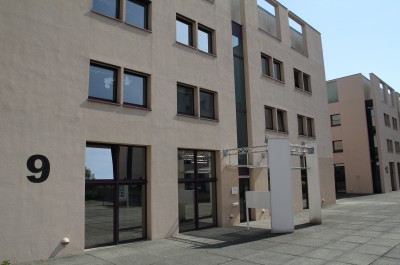The Criminological Research Institute of Lower Saxony (KFN) is an independent research institute mainly dedicated to understanding the preconditions and consequences of crime. Our criminological research is fundamental, practice-oriented, and interdisciplinary. We currently employ around 20 scientists from the fields of criminology, law, sociology, political science, and psychology, as well as a large number of student assistants and interns. The KFN is divided into three research units: Aetiology of Deviance, Victimology, and Institutions of Social Control, which are supported by a Methods Department.
The research unit Aetiology of Deviance is primarily dedicated to offender-related research on causes of crime. Based on empirical research rooted in theory, it combines microscopic and macroscopic perspectives. This unit focuses on the study of crime over the life course, the investigation of deviant behaviour against the background of social change, and the analysis of how deviations from the norm are handled. Currently, we focus on the following research questions: (1) How and under what conditions do different delinquency trajectories emerge among adolescents? (2) How and under what conditions does religion influence deviant behaviour? (3) How and under what conditions do ethnic asymmetries in social norm enforcement come about? To answer these and other research questions, we use quantitative (cross-sectional and longitudinal surveys and experiments) and qualitative approaches (as well as a combination of the two).
Aetiology of Deviance
Heads of research unit:
|
Criminality over the life course | Social change and deviance | Reactions to violations of norms |
Aetiology of DevianceHeads of research unit:Dr. Jan-Philip Steinmann und Prof. Dr. Thomas Bliesener |
| Criminality over the life course
Integration and deviance trajectories of immigrant youths Social change and deviance Historical roots of crime in international comparison Reactions to violations of norms |
The research unit Victimology investigates crime by focusing on the perspectives of individual victims. One focus is on procedural victimology, i.e., the interaction of victims of crime with state institutions, especially law enforcement agencies. Against the backdrop of the ongoing discussion about improving victim protection and reform efforts, this research unit focuses on the following research questions: (1) How do victims of crime experience criminal justice procedures and what influences this? (2) How effective are reform efforts in protecting victims? In addition, the research unit strives to regularly examine current, socially relevant victimological phenomena with a cross-sectional focus on the previously mentioned research questions. To this end, the research unit uses a mix of quantitative and qualitative methods, focusing on the implementation of longitudinal studies.
The research unit Institutions of Social Control primarily focuses on the penal and correctional systems (including juvenile detention). However, the work of the criminal justice system and other state institutions of social control that respond to norm violations (e.g., police, juvenile and family welfare) is also examined in various projects (e.g., retrial, human trafficking, sentencing, femicide, transition management). Currently, the following research questions are being examined: (1) To what extent do certain sanctions of criminal law—such as the currently much-discussed alternative custodial sentence—have a special preventive effect? (2) What is the effect in terms of special and general prevention if the sanctions required after a norm violation and expected by the perpetrators or their environment are not imposed? (3) How and under what conditions does the individual (experience of justice) in the context of the criminal process and the penal system influence the effect of sanctions on special prevention? The approach to the research questions usually involves multiple methods. It integrates a broad spectrum, from (expert) interviews to dark field studies and file analyses to the evaluation of official registry data.
The Methods Dept. focuses on research methods and statistical procedures that are used to observe, measure and analyze crime phenomena. In view of the constantly developing new data sources (e.g. big & digital data), innovative research designs (e.g. virtual & video scenario) and analysis methods (e.g. machine learning), many opportunities are opening up for empirical criminology. The vision is to explore the challenges and potentials of the new “method fields” for criminological research at the KFN through methodological research. Furthermore, the Dept. intends to document past KFN research projects under methodologically relevant categories and to synthesize the results of long-term KFN research areas (e.g. Lower Saxony surveys and student surveys) using new analytical methods. In addition, the Dept. actively supports the research units and scientists of the KFN in the planning and implementation of projects and is responsible for further training and the promotion of academic networks.
Methods Dept.
Head: PD Dr. Daniel Seddig |
Methodological research
|
Synthesis and documentation
|
Consultation and training
|
Methods Dept.Head: PD Dr. Daniel Seddig |
Methodological research
Synthesis and documentation
Consultation and training
|

